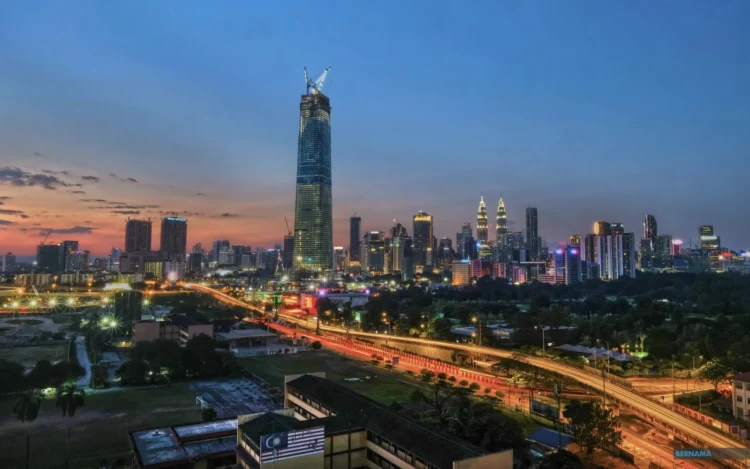Kuala Lumpur (KL) has climbed 16 spots to rank as the 73rd smartest city out of 142 cities worldwide, according to the Institute for Management Development’s (IMD) Smart City Observatory’s 2024 Smart City Index (SCI), which has just been published.
This represents a significant improvement compared to its 89th ranking last year.The report commended KL for a number of its outstanding achievements, such as the convenience of online ticket purchases and the availability of online job ads that facilitate job searching.
The research identifies the most urgent challenges as being connected to affordable housing, traffic congestion, and corruption and transparency.For the sixth time in a row, Zurich was crowned the winner of the SCI, with Oslo coming in second and Canberra in third. The results of the study indicated that Geneva had taken fourth place and Singapore had taken fifth place.
A group of six cities – Sydney, Hong Kong, Shanghai, Tallinn, and Riyadh – are expected to immediately join the ranks of “super champions,” which also include Zurich, Oslo, Singapore, Abu Dhabi, Beijing, and Seoul.
This is because they have either remained in the same position or risen in the rankings after starting from lower (21st to 40th place).Bruno Lanvin, president of the Smart City Observatory, believes that communities must create and execute plans that are capable of enduring an increasingly unpredictable future.
He points out that escalating international tensions exacerbate the existing health-related challenges that are closely intertwined with climate change. Lanvin emphasizes the growing importance of trust and effective governance, stating that AI’s role in city planning and administration will continue to expand.
According to the report, cities in the US like Washington DC, Denver, Los Angeles, San Francisco, New York City, and Chicago, as well as Ottawa and Montreal in Canada, have been losing ground. For the first time since the index was created in 2019, there are no North American cities in the Top 20.
“Last year, most US cities saw an increase in the index, but this year they have dropped. One explanation could be Biden’s Build Back Better initiative, which had a positive impact. On the other hand, this year’s upcoming elections have made people more critical of areas that need improvement,” explained Lanvin.
With Five years of data are now available. The 2024 edition of the index allows for the calculation.ion of moving averages, providing average city positions. These results will help policymakers anticipate future trends in the next three-year cycle.
Follow us on Instagram, Facebook or Telegram for more updates and breaking news.








